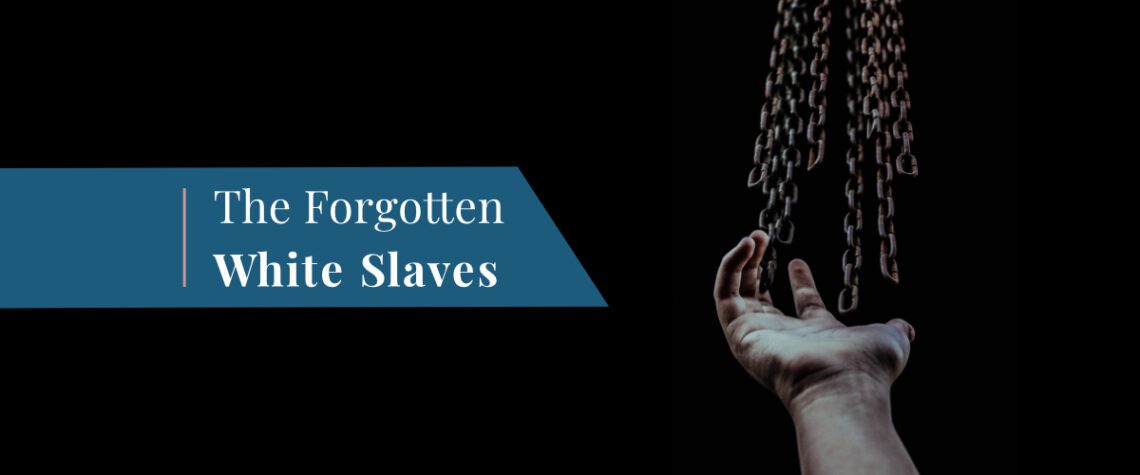
The Forgotten White Slaves and the Ignored History of Slavery Worldwide
The story of slavery is more complicated than you’ve been told. Did you know that up to 1,250,000 white slaves were shipped to North Africa? Did you know a fifth of the United States government’s 1797 budget was paid in tribute to North African Muslim nations to free and stop enslaving Americans? Did you know the Ottoman Empire enslaved millions of Europeans? Did you know that slavery was so common in ancient Britain that the Anglo-Saxon word for ‘Briton’ was used interchangeably for ‘slave?’ Did you know owning and selling slaves was universal? The story of slavery is more complex than we realise, and we should reassess our relationship to history and its legacy by acquainting ourselves with the facts.
Speaking about the forgotten Barbary Slave Trade, Professor Jo Esra, of Exeter University said, “There’s an element that it has been culturally erased.”
– Barbary Piracy that Enslaved Thousands ‘culturally erased,’ BBC Cornwall, 29 December 2017
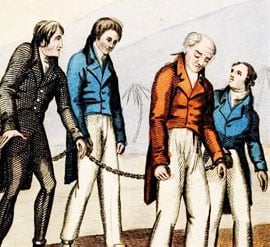
But before we had lost sight of land, we were captured by Algerine pirates, who put all the men in irons
– Rev. Devereux Spratt, enslaved, April 1641, sailing with 120 passengers from Ireland to England. His story is but one of the estimated 7,000,000 white slaves taken to the Barbary Coast or to the Ottomon Empire
Those who control the present, control the past and those who control the past control the future
Nineteen Eighty-Four (1984), George Orwell
- We Need Borders!
- The Book of Revelation Chronology
- What is a Woman?
- Why Abortion is Wrong
- Climate Change Fraud
- Is Being Woke Christian or Antichrist?
- BBC Bias News
- Electric Vehicles are Bad
- Climate Activists and Tantrums
- Cancel Culture and Faith
- Stock Market Crash and the Second Great Depression
- Money Saving Tips
- Reparations Have Been Paid For Slavery
- A Third Temple in Jerusalem will be Built
- The Battle of Armageddon
- 666 – Mark of the Beast
- The Second Coming
- The Nephilim
- The 144,000 in Revelation
- Israel’s Peace Treaty with the Antichrist
- The End Times Book
- Heaven Book
- Rees Howells & Prayer
- Book Reviews & Faith
- The Cost of Living Crisis
- Recent Articles
- Revivals and Awakenings
- Christianity and Culture
- Christian Book Reviews
- The Battlefield of the Mind
- Current Events from a Christian Perspective
- A Prayer to Break Curses and Release God’s Blessing
- A Prayer to Overcome Fear and Panic Attacks
- Why Church Decline?
- Biblical Archaeology
- Faith and Art
- The Crisis of the 2020s
Did you know massive reparations have already been paid for the sin of slavery? Find out more here
He who controls the flow of information controls people. The more I read books written before the age of political correctness, the greater I appreciate that ninety-five percent of history is not taught. People can control you if they craft a narrative about your place in the world, as an oppressor or victim.
“The Lord has anointed Me to preach good tidings to the poor; He has sent me… to proclaim liberty to the captives” (Isaiah 61:1).
Slavery was a universal evil inflicted upon people in almost every culture, region and period of history. When you mention the word ‘slave’ your mind immediately is drawn to the horror of the Transatlantic Slave Trade. Slavery was, however, widespread throughout the ancient world and in the modern era, and continues today. The number of slaves suffering today is estimated to be from 38,000,000 to 46,000,000.
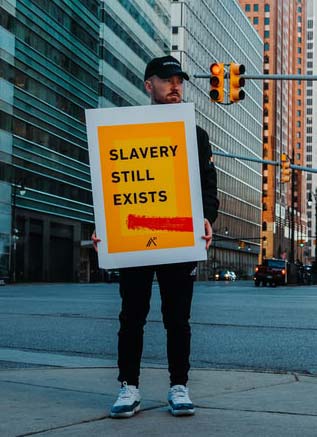
Captn. Mootham and Mr. Dawes (who have been both slaves there) did make me fully acquainted with their condition there: as, how they eat nothing but bread and water. At their redemption they pay so much for the water they drink at the public fountaynes, during their being slaves. How they are beat upon the soles of their feet and bellies at the liberty of their padron
– The Diary of Samuel Pepys, Algiers Slavery, 8 February 1661
Almost every ancient civilisation possessed slaves and enslaved others. The English word ‘slave’ derives from the enslavement of the ‘Slavic’ peoples. Thus, when the word ‘slave’ was coined in the West, the impression was of a Caucasian slave. Only in the last century has the shocking history of slavery been selectively read through the lens of American race issues and that for political gain.
The oldest written history of the Slavs can be shortly summarised – myriads of slave hunts and the enthralment of entire peoples. The Slav was the most prized of human goods. With increased strength outside his marshy land of origin, hardened to the utmost against all privation, industrious, content with little, good-humoured, and cheerful, he filled the slave markets of Europe, Asia, and Africa.
It must be remembered that for every Slavonic slave who reached his destination, at least ten succumbed to inhuman treatment during transport and to the heat of the climate. Indeed Ibrāhīm (tenth century), himself in all probability a slave dealer, says: “And the Slavs cannot travel to Lombardy on account of the heat which is fatal to them.” Hence their high price.
The Arabian geographer of the ninth century tells us how the Magyars in the Pontus steppe dominated all the Slavs dwelling near them. The Magyars made raids upon the Slavs and took their prisoners along the coast to Kerkh where the Byzantines came to meet them and gave Greek brocades and such wares in exchange for the prisoners
–The Cambridge Medieval History, Volume II, p. 429, 1913
Slavery was a worldwide institution and was so accepted by all, that it went forcefully unchallenged until the eighteenth century, and this only by Western civilisation. After banning the Slave Trade and the institution of slavery itself, Britain experienced unyielding resistance from countries and empires, in Africa, the Middle East and South America, who desired to retain the trade. British documents from consulates, political debates chronicled in Hansard, records overseas and firsthand testimonies from missionaries attest to this.
The question needs to be asked: Why did no power fundamentally question and thus end slavery in the ancient world? Aristotle called it ‘natural,’ whilst others played with abolishing it, only for it to return.
He who kidnaps a man and sells him, or if he is found in his hand, shall surely be put to death
– Exodus 21:16
The Bible is the source of inspiration that led to the end of traditional slavery in the modern world. But the authors were concerned with spiritual redemption first, not cultural justice. The Old Testament laws on enslavement in the ancient Israelite kingdoms were founded on provisions and responsibilities towards slaves. In the 5th century BC, Nehemiah is credited with abolishing the enslavement of Israelites by their own people, when he rebuked the rich for owning the poor.
The people complained against the rich, saying, “Indeed we are forcing our sons and our daughters to be slaves, and some of our daughters have been brought into slavery.”
Nehemiah said to them, “According to our ability we have redeemed our Jewish brethren who were sold to the nations. Now indeed, will you even sell your brethren? Or should they be sold to us?”
Then they were silenced and found nothing to say. Then I said, “What you are doing is not good. Should you not walk in the fear of our God because of the reproach of the nations, our enemies?”
– Nehemiah 5:5, 7-9
The wealth of Rome was built on throwaway slaves which were worked to death in appalling circumstances. As ancient philosophers debated questions of justice, they were also content to abuse other human beings to their death for profit and pleasure.
The slaves who are engaged in the working of [the mines] produce for their masters’ revenues in sums defying belief, but they themselves wear out their bodies both by day and by night in the diggings under the earth, dying in large numbers because of the exceptional hardships they endure. For no respite or pause is granted them in their labours, but compelled beneath blows of the overseers to endure the severity of their plight, they throw away their lives in this wretched manner; indeed death in their eyes is more to be desired than life, because of the magnitude of the hardships they must bear.
– Diodorus Siculus 5.38.1
The apostles didn’t challenge the Roman Empire’s obsession with enslaving people, but Paul encouraged Philemon to perceive his runaway slave Onesimus, as a Christian brother. Redemption begins in the heart. He thus set a precedent in Christendom that Christians should not be enslaved; this is why Europeans slowly outlawed enslaving their own people. In the sixth century, Pope Gregory the Great saw some fair-skinned slaves from Britannia in a slave market in Italy and commented, they were not, “Angles, but angels.”
Perhaps he departed for a while for this purpose, that you might receive him forever, no longer as a slave but more than a slave – a beloved brother
– Philemon 1:15-16
Pope Zachary banned the sale of Christians to Muslims in the 740s and by 873, Pope John VIII called enslaving Christians sinful, advocating freedom. By 1080, William the Conqueror in England prohibited the sale of slaves to non-Christians and in 1102, London’s ecclesiastical council banned the slave trade in England decreeing it illegal to sell “men like animals.”
The British inspired by their faith in Christ, smashed the death knell into the Slave Trade and slavery. In 1763, Lord Henley, set a precedent that as “soon as a man sets foot on English ground he is free.” The first major power in world history to permanently ban the Slave Trade was Britain in 1807, with the Abolition of the Slave Trade Act. This was passed after decades of campaigning by evangelical Christians led by William Wilberforce and it abolished the trade throughout the British Empire. The Royal Navy was then commissioned to suppress and then end the Slave Trade.
The Royal Navy freed 150,000 African slaves and began a campaign to destroy the Slave Trade network, blowing up slave ports and capturing slave ships. It is the first example of international law (albeit self-appointed) being enforced. The Slavery Abolition Act also abolished the institution of slavery itself in 1833.
In Zanzibar, I walked inside the cells of what was erroneously called the last open market for trading slaves (Isis opened their own slave markets in 2014). Historians estimate 50,000 Africans were sold through this market each year and the Sultan was unwilling to sign a British deal to eradicate it. Therefore, the Royal Navy bombarded Zanzibar on 27 August 1896, creating the shortest war in history (38 minutes), and ending slavery there.
Between 15 and 20 million Africans were enslaved by the Arab-Muslim Slave Trade. All their stories have been ignored and forgotten
The Arab-Muslim Slave Trade is another part of world history that has been ‘culturally erased’ for political reasons. Historians estimate 2,500,000 more Africans were sold as slaves to Muslim-majority countries, than to the Americas, others say it’s far more. Europeans transported 12 million Africans to the Americas, meanwhile, 15 to 20 million Africans were imported by the sultans, emirs and khans of the Muslim world. This fact has been erased from our education systems.
The Arab word ‘abīd’ used for ‘slave’ during the Arab Slave Trade is still used to describe black people in the region and selling black people as slaves continues in places such as Libya.
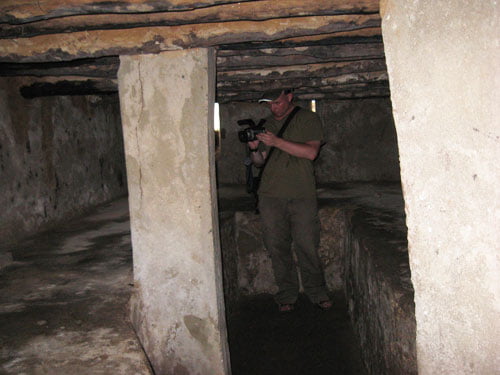
Tragically, it is not ‘The World’s Last Slave Market’
2,500 years before Christ, slave trading in the Indian Ocean was being operated by the Babylonians, Egyptians, Greeks, Persians and Indian peoples. The ‘modern’ Indian Ocean Slave Trade operated from the 7th century until 1920. The French historian Olivier Pétré-Grenouilleau estimates 17,000,000 slaves were sold throughout the Middle East, East Africa and Indian Ocean territories. China has a 7th century text from an ambassador in Java who gifted an African slave to the Emperor in AD 614.
‘Stand fast therefore in the liberty by which Christ has made us free and do not be entangled again with a yoke of slavery’ (Galatians 5:1).
Nigerian journalist Adaobi Tricia Nwaubani, wrote about her great-grandfather, who sold slaves, saying, ‘Acclaimed Igbo historian Adiele Afigbo described the Slave Trade in south-eastern Nigeria which lasted until the late 1940s and early 1950s as one of the best-kept secrets.’ As well as possessing and selling African slaves, one King of Uganda from the late nineteenth boasted of having two white slaves (missionaries) whom he refused to let leave.
Igbo slave traders like my great-grandfather did not suffer any crisis of social acceptance or legality. They did not need any religious or scientific justifications for their actions. They were simply living the life into which they were raised.
Buying and selling of human beings among the Igbo had been going on long before the Europeans arrived. People became slaves as punishment for crime, payment for debts, or prisoners of war. Slavery was so ingrained in the culture that a number of popular Igbo proverbs make reference to it: ‘Anyone who has no slave is his own slave.’
The arrival of European merchants offering guns, mirrors, gin, and other exotic goods in exchange for humans massively increased demand, leading people to kidnap others and sell them.
– My Nigerian Great-Grandfather Sold Slaves, by Adaobi Tricia Nwaubani, BBC, 19 July 2020
Facts We Must Consider:
- Slavery still exists: estimates of the number of slaves range from 38,000,000 to 46,000,000 people
- 1,200,000 children are enslaved through forced labour, often paying off family debts
- There are more living slaves today than those seized from Africa during the four centuries of the Transatlantic Slave Trade
- Modern slavery includes forced and bonded labour, sexual exploitation, prison labour (Uyghurs in China), unpaid domestic, construction and agriculture work (exploited people with no rights / visas).
- There are an estimated 42,000,000 prostitutes in the world. Most have little to no power over their lives and are forced to pay off debts to criminal gangs
- 800,000 people are illegally trafficked across international borders each year
- Those who visit and permit strip clubs / brothels create the demand for the trafficking and enslavement of up to 1,000,000 women in the West
White Slaves
- St Patrick is a prominent slave who was kidnapped and forced to work in Ireland in the 5th century
- The ninth century laws of King Ælfred of Wessex contain details about the treatment of local slaves
- England’s Domesday Book identified 10 percent of the population as slaves in 1086
- In the 11th century, Bishop Wulfstan fought against the enslavement of locals in Bristol. English debtors were sent to Ireland as slaves
- The Mongols, led by Genghis Khan and his successors, captured and sold thousands of Caucasian slaves
- The powerful Muslim Ottoman Empire enslaved up to 6,000,000 Europeans. These slaves were Ukrainians, Georgians, Circassians, Greeks, Armenians, Bulgarians, Romanians and Slavs, etc. As an example, Ottoman forces retreated from Vienna with 80,000 slaves in 1683. The Ottoman rulers preferred white female sex slaves for their Harems in Constantinople (Istanbul) and elsewhere
- Up to 1,250,000 white slaves were captured by Muslim forces and enslaved by the North African Barbary States
- The coastlines of South West England and much of Europe were at the mercy of Muslim Barbary Slave Traders for at least 250 years
- European empires emerged in part to control the seas because Muslim slave traders plundered Europeans from their home countries between 1530 and 1780
- Britain’s Lundy Island was a Muslim Slave Trade colony to capture English people for enslavement during parts of the 1600s
- On 27 March 1794, the United States Navy was founded to stop the enslavement of white Americans in North Africa
- Nazi Germany enslaved 15,000,000 people, mostly from Central and Eastern Europe. Mistreatment, severe malnutrition, exhaustion and torture were the main causes of death
- Japan captured and enslaved close to 140,000 allied military personnel from Canada, Great Britain, India, Netherlands, New Zealand, and the United States
European Slavery (In all But Name)
- Serfs made up 75 percent of the medieval population of Europe. They were, by all modern standards, slaves, but without the title
- In Europe, for much of history, most people had little, to no human rights and lived in abject poverty. They owned nothing and worked to support a few thousand families on their vast estates
- In England, an uncounted number of people were paid with tokens instead of money, which could only be redeemed in their employer’s shop. Therefore, they could not save money and if they tried to leave for another area, vagrancy laws forced them back into virtual enslavement
- 72,000 people were hanged in England until the fifteenth century, often for petty crimes
- In England, enemies of the state could be boiled, burnt at the stake, hung, beheaded and drawn and quartered
- From 1735 to 1964, 10,378 men and 557 women were hung in England and Wales (some people refused to carry out the sentence due to its cruelty)
- There were 222 crimes punishable by death in Britain in the 18th century, including for cutting down a tree and for catching one wild animal for food
- Several million men suffered from impressment in history. This is forcing or being press-ganged into the military or navy. When they died in war, their bodies were not returned, nor did their families get help
- For 300 years in Britain, millions of Britons suffered the deliberate cruelty of living in the Workhouse, where all were stripped of any rights. Most were closed by the 1930s
- For hundreds of years, children in the West were considered little adults and were expected to work full-time in coal mines and factories, etc
- Approximately 450,000 Europeans who arrived in the 13 colonies before 1775 were indentured. They laboured for free to repay debt, such as the cost of the passage
- Between 1788 and 1868, approximately 162,000 people were shipped from Britain to Australia for crimes such as stealing a loaf of bread to survive
- 70,000 Scots were forced off their historical homeland and into extreme poverty by the highland clearances between the mid 18th and 19th centuries, proving ‘free people’ were not actually free
- In 1834, the Tolpuddle Martyrs represented millions who were tired of living in extreme poverty and they formed a group to ask for better pay. They were transported to Australia in chains
- One third of the population of Imperial Russia were serfs in the 19th century
- 30,000 children were shipped abroad from Britain between the 1920s and 1970s, experiencing servitude, hard labour and abuse
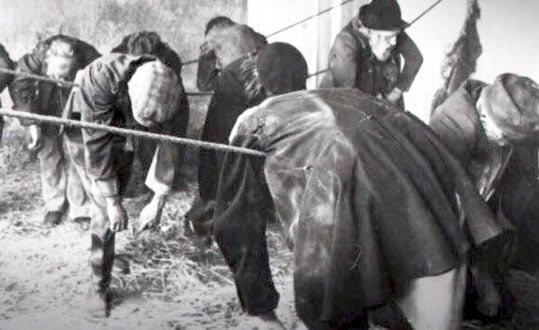
- In Victorian Britain, there were 30,000 homeless children in London alone
- The homeless in Victorian times could rent a two-penny hangover, a rope you could hang over to sleep, or a four-penny-coffin to sleep in
- With no welfare state, 80,000 women in London turned to prostitution to survive in the 1880s
Enslavement in the Ancient World
- Almost all ancient kingdoms and empires possessed slaves
- The Egyptians enslaved the Hebrews
- One third of the people in ancient Greece were slaves
- In the Roman Empire, one in three of the population at its heart and one in five across the empire were slaves
- Up to 10,000,000 slaves existed in the Roman Empire in the first century alone
African Slaves
- In Senegambia, West Africa, close to one third of the population was enslaved between 1300 and 1900
- 2,500,000 more African slaves were taken to the Muslim world than to the New World
- Historians estimate African slaves shipped to Muslim countries to number between 12,000,0000 and 15,000,000.
- The European Transatlantic Slave Trade shipped 12,500,000 Africans to the New World between 1525-1866.
- African kings such as the Kings of Dahomey, Whydah, Tegbesu, Gezo, made a fortune selling African slaves to Europeans and Arabs, and lobbied the British not to outlaw it
- In the eighteenth century, David Livingstone famously argued Europeans must engage with Africa to end the lawless slave traffic within Africa. His phrase, legitimate ‘commerce’ meant creating an economy not grounded in selling slaves
- In Ethiopia, 2,000,000 Africans were enslaved by their own people in the 1930s and it persisted until 1942
- Slavery continues in Africa, in many forms, including bonded labour
- Charities estimate there are 9,200,000 modern slaves in Africa
- The Libyan Slave Trade is active now
Muslim World
- About a fifth of the 16th and 17th century population of the Muslim Ottoman Empire comprised of slaves
- Ottoman Turk custom statistics reveal Istanbul’s additional slave imports from the Black Sea reached 2,500,000 from 1453 to 1700
- Female sex slaves were being sold in the Ottoman Empire up until 1908
- The West pressured the Muslim world to end their slave trades and slavery, including the bombardment of Algiers by the Anglo-Dutch in 1816 and the war with Zanzibar in 1896
- European empires forced the Muslim world to end ‘Jizya,’ a tax laid upon non-Muslims for failure to believe in Islam
- Slavery was legal in most Middle Eastern and North African Muslim-majority countries until pressure by the West, from the 1930s onwards forced a change of law. Mauritania was the last to outlaw slavery in 1981
- Mauritania retains over 500,000 modern day slaves, who live as indentured labourers, domestic servants or child brides
- Indian and other Asian countries still charge the Middle Eastern nations with treating their citizens as little more than slave labour with no rights
India, China and Japan
- Millions of Indians were enslaved during the ancient, medieval and Muslim periods
- Chinese slavery was governed with rigour and millions were enslaved
- Japanese slavery was regulated and inflicted upon many
- 670,000 Koreans were enslaved by Japan during World War II
- Up to 800,000 Korean and Chinese people were worked to death by the Japanese during World War II
- Modern India accounts for almost 8 percent of those presently enslaved
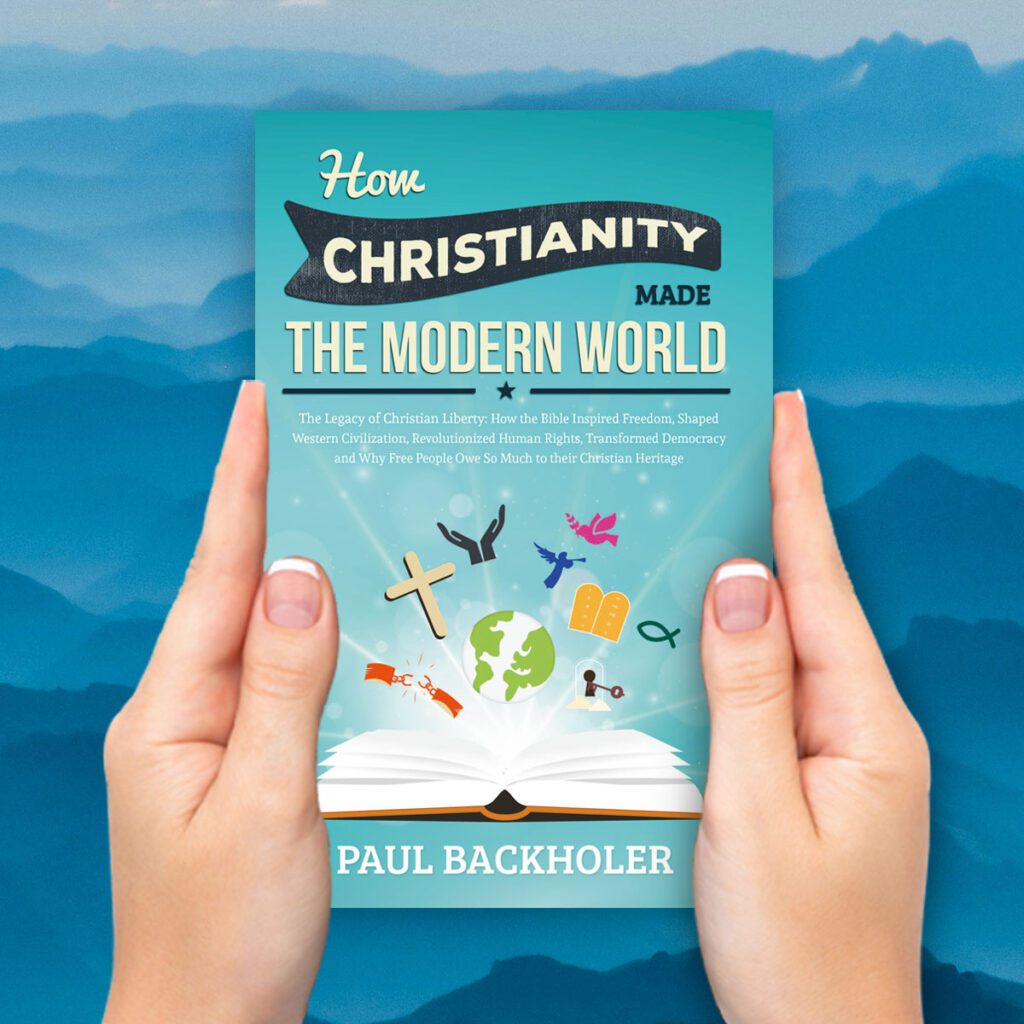
Whilst this is only a small segment of the available data, it’s important to remember that world history is more complex than the narratives the elites manipulate to control people’s opinions and voting habits, particularly in the United States. No one culture is free from blame and if you understand ancestry, you will discover all have victims and perpetrators in our ancestral line. You have 4 grandparents, 8 great grandparents, 16 second great grandparents and…1,048,576 eighteenth great grandparents, etc!
Someone in your ancestry, perhaps hundreds of years ago, was a slave and another sold slaves; a shocking thought
The American University system produces a cornucopia of partisan documents which are focused upon one terrible form of enslavement. This creates movements, philosophies and ideologies which do not reflect the fullness of world history. These hinder the dream of Dr Martin Luther King Jr., to live in a world where one is judged by the conduct of one’s character, rather than the colour of one’s skin. They also remove the focus from ending slavery today, as people argue over the past.
There is neither Jew nor Greek, there is neither slave nor free, there is neither male nor female; for you are all one in Christ Jesus
– Galatians 3:28
When I was in Africa, the subject of slavery was mentioned and I apologised for Britain’s criminal role in the Transatlantic Slave Trade. I was shocked by the response from a highly educated and successful African. “Why are you apologising?” he replied. “Who do you think sold the slaves to your people? It was us, the Africans. We enslaved and sold our brothers and sisters. We all have blood on our hands.”
- The End Times
- Recent Articles
- Revivals and Awakenings
- Christianity and Culture
- Christian Book Reviews
- The Battlefield of the Mind
- Current Events from a Christian Perspective
- What is a Woman? And why it Matters to Christians
- Stock Market Crash – The Everything Bubble, Tulip Mania and the Second Great Depression
- The Joe Biden Crisis. America’s Debts and the return of President Trump
By Paul Backholer. Find out about Paul’s books here.
Sources and Notes:
Books
- How Christianity Made The Modern World by Paul Backholer
- Empire: How Britain Made the Modern World by Niall Ferguson
- Christian Slaves, Muslim Masters: White Slavery in the Mediterranean by R Davis
- Islam’s Black Slaves by Ronald Segal
- White Cargo: The Forgotten History of Britain’s White Slaves in America by Don Jordan
Websites
- Modern Anti-slavery groups
- Global Slavery Index
- The Diary of Samuel Pepys, Slavery, 8 February 1661
- Why do we never talk about Islamic slavery? The Spectator, 13 June 2023
- Barbary piracy that enslaved thousands ‘culturally erased,’ BBC Cornwall, 29 December 2017
- Seabed gold ‘clue to white slavers,’ The Guardian, 6 January 2003
- Slavs, Slaves and Slavery, Intercollegiate Studies Institute
- The Story of African Slavery, BBC
- My Nigerian Great-Grandfather Sold Slaves, by Adaobi Tricia Nwaubani, BBC, 19 July 2020
- Office for National Statistics: Modern slavery in the UK, March 2020
- Annual Report on Modern Slavery, UK, 2021
- There Are 42 Million Prostitutes In The World, Business Insider, 17 January 2012
- Barbary Pirates and English Slaves, Historic UK
- British Slaves on the Barbary Coast, BBC History
- Slavery wasn’t only for Africans, The Guardian, 2011
- Victorian Workhouses, Historic UK
- Britain’s Child Migrant Programme, The Guardian, 27 February 2017
- Doctors, Welfare, and the Deadly Workhouse, The Guardian, 27 November 2012
- Slavery in Ancient Rome, British Museum
- The Highland Clearances, Historic UK
- The US Navy Was Founded To Free White Slaves In North Africa, 27 September 2021
- Victorian Ladies Of The Night, Prostitution
- A Very Victorian Two-Penny Hangover
- People for Sale in Libya
- The Libyan Slave Trade has Shocked the World




